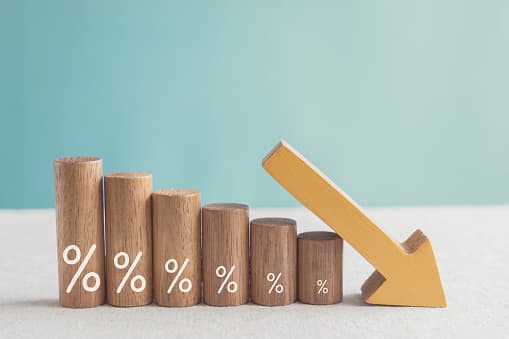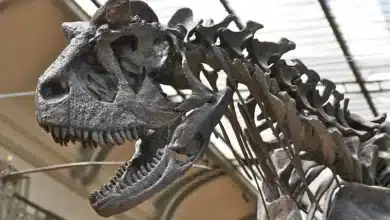This month’s Think Tank panel looks at the effect of interest rates on small businesses. What’s hurting more: interest rates or public perceptions of a tightening economy? Our forthright panel expresses concerns for Australia’s economic growth under the new Federal Government.
The Panel
- Arthur Blewitt – CEO, Agri-Food Industry Skills Council
- Stephen Craft – Executive Manager, Commonwealth Bank of Australia
- Tony Steven – CEO, Council of Small Business of Australia
- Adrian Tischler – CFO, Tankworks, a Sydney-based manufacturer of rainwater tanks
- Louis White – Host
Interest rate rises
Louis White: Australia has had 12 interest rate rises since 2002 with the current official rate at 7.25%, inflation at 4.25% and unemployment at 4.1%. The Economist has downgraded Australia’s growth for 2008 to 2.9%, a one per cent drop from 2007. There are many conflicting signs within the Australian economy and one wonders if the Reserve Bank of Australia is the best body to actually decide monetary and fiscal policy. What will be the impact on the economy if there is no interest rate rise in the next six months?
Tony Steven: I think we had to have the interest rate rise. There needed to be some kind of extraction of funds from the economy in order to quell demand. There are two pressures on inflation in Australia at the moment. One is that the demand was very high because of the amount of money in the system, but secondly, there are supply push effects on inflation as well because of the constraints in the economy due to the lack of workers available. We’re in a bit of an unusual situation when you compare it to the last 50 years. Because of the beginning of the retirement of the Baby Boomers, there are fewer people available in the workforce, meaning demand is not always filled.
Stephen Craft: I think that’s correct. The consensus view seems to be that there will be another rate rise sometime in the near future but that it may be the last one in the cycle. According to our chief economist Michael Blythe, rates could top out at 7.5%. But obviously, monetary policy is a balancing act and at the moment there are very mixed signals coming through.
Arthur Blewitt: About 10,000 farmers have left the farms in the past 12-18 months and racking up interest rates just forced their hand a bit. To some extent that’s a good thing because there’s a degree of corporatisation going on out there that allows companies to drive bigger scale activities and compete better internationally. It also allows some of those bigger companies to give better careers and opportunities that pay better. There’s some good and bad, but certainly, there has been some fallout and we expect more of that to go on more or less at that rate for the time being.
Adrian Tischler: For us, interest rates are very important because we’ve got quite a significant business face in the housing industry and obviously homeowners are very sensitive to interest rate rises. Inflationary pressures to have a huge impact because there’s a follow-on effect that reduces people’s available income for reasonably big-ticket items like water tanks.
Tony: The Reserve Bank only has one lever, interest rates, and yet it’s expected to control the economy with that one lever. The equivalent is like trying to turn a great ship with just one control. I’ve often wondered whether, and I’m speculating here, but I’ve often wondered whether the GST could be used as a brake or an accelerator to affect the economy.
Louis: What about if we were to raise GST across the board? What effect would that have? Tony: If you we’re to raise the GST by a quarter of a per cent, the effect would be more significant when compared with interest rates because it would impact across the whole economy, whereas interest rates only affect about 30% of the economy, that’s people with new mortgages.
Stephen: Yes, obviously it affects business borrowers and others as well; I think it’s an interesting policy idea.
Tony: It’s a political nightmare I understand that.
Stephen: It would be almost like a 2% interest rise.
Tony: Well that’s right. I think you’d have to adjust GST by a fraction of what you’d adjust interest rates to get the same effect because it’s right across the whole economy. But it’s an interesting question; I don’t think it’s ever been mentioned.
Arthur: The flow-on effect is quite enormous and I think there’s such a political momentum against it right now it’s hard to judge. I think it’s a much better way to do it because as you said it covers the entire economy rather than the one-trick pony the Reserve Bank has with adjusting interest rates.
Negative economic perceptions
Louis: The Howard government talked up the economy so much that until December 2007 we thought we were living in the greatest place in the world. Since they were elected, Prime Minister Rudd and Treasurer Swann have urged caution, which sent alarm bells out into the business community. Is this reducing consumer confidence in a way that affects small businesses?
Stephen: We run a regular business expectations survey with the Australian Chamber of Commerce and Industry. The latest results show businesses both large and small expect costs to rise and sales and profits to fall. In fact, the economic performance indicators are at their lowest levels since 1994, so that’s a bit depressing. I was also looking at some unpublished data from the Australian Business Register about business number registrations. It’s a bit of a crude indicator, but it’s interesting because it’s forward-looking. Business registrations have slowed, particularly in the small business category. In March 2008, we had about 19% fewer sole traders registering new businesses compared to the year before, and also 30% fewer private companies registering. Small business is a confidence game and unfortunately, at the moment people are making the decision not to go into business.
Tony: The interesting part is, there are not only the actual restraints on small businesses but also the perceived restraint. There’s a lot of the forward movement in the economy that’s slowed is due to perceived problems. Inflation gets to a certain level and everybody starts to react. But small businesses won’t look at the economy as a whole and say, ‘I’ve got to pull my head in or stop investing’. They’ll just look at how many people come up to the counter and spend dollars across it. So if consumers stop or slow spending, small businesses will react to that. That’s what’s happening at the moment.
Arthur: It’s self-fulfilling, isn’t it? I think the other issue is a lot of outsourcing companies in a commodity market; they’ve got no real place to go. I think the messages are clear for both sides of government. Handing out $30 billion in tax cuts and then trying to contain it by cutting government expenditure puts enormous pressure on the Federal Government from where I sit.
Adrian: We’re going to have to spend more and spend more wisely because, as the market becomes more competitive, it’s all the more important to be proactive. It also gives us an opportunity to grow because we’re in an industry where quite a few small players are potentially going to be squeezed to the point where we’ll see opportunities to take over their business.
Stephen: Some economists say the Reserve Bank uses that psychological factor a great deal to affect people’s activity. If consumers are concerned there might be more interest rate rises coming, and they curtail their spending, maybe those interest rate rises won’t be necessary. Of course, the same factors could also limit business investment.
Skills shortage
Louis: What have been the combined effects of rising interest rates and low unemployment on SMEs? Does Australia have a population or skills shortage or both? Should we rely on migration to fill the gap?
Adrian: We certainly find it difficult to recruit and maintain skilled labourers in our factory. I don’t know really where that’s coming from, maybe it’s not such a fashionable thing to do anymore, to work with sheet metal in the factory for $17 an hour. So that’s an issue for us. There has certainly been a plateau in demand in the rainwater tank business but it’s hard to tease apart what’s actually going on there. People being what they are, they’ve seen a bit of rain lately and they think there are no problems anymore with water, and so that’s definitely one of the factors that are driving it downward. But I think too with something like a rainwater tank, they cost a few thousand dollars, it’s a significant enough amount for people to then consider, ‘Well, do I buy a tank or do I have another holiday or do I pay a bit extra off my mortgage?’ So we’re starting to feel the pressure in terms of the retail market.
Arthur: I focus on the agri-food industry and we look after about 130,000 individual enterprises which generate around $208 billion each year. In terms of skills, it’s really about the shortage of people coming to the regions. There are many better paid and perhaps more attractive jobs in the eastern states and Western Australia, for example. The surveys we conduct show that people with skills shortages are a key barrier to growth. If you read the papers and the analysis these days there are enormous opportunities now in food exports but we’re not meeting our meat quotas because we can’t get enough people to process the stuff.
Tony: Near full employment has resulted in few people taking up skills training. The building site here near my office employs about three or four hundred people and I think about 60% of those have no skills. They’re getting very little pay to do a job, and that’s the other contributing factor. With immigration, it is critically about getting them in and then getting the right skills, which is becoming harder because people aren’t planning to come to Australia that has got good skills at the moment, for a lot of reasons.
Adrian: My concern is that in the quest for skills training, we are opening up a vacuum at the bottom end of unskilled labour. I question this drive for skills when a lot of what’s needed doesn’t require a particularly high level of training.
Arthur: Food processing is demanding higher skills. Certainly, a lot of the areas that we wrestle with are about labour. We are also talking to the government about trying to ease off some of the migration criteria and demand for higher skills to come into the country and actually bring in some people that have lesser skills, certainly not unskilled but semi-skilled, and actually get some training here that’s relevant. A lot of the industries we mentioned have a high demand for capable people but not necessarily with formal qualifications.
Stephen: Small businesses have to look at the things they can control. Businesses that get back to basics and do them well will prosper now and then when things pick up, they will be in a great condition to grow. So you have to look at all the basic numbers around your business: rate of leads, rate of conversions, rate of sales, what are your profit margins, what’s your cash flow position, all of those basic things about running a business. and get them right.
Tony: I’ve been saying in my forums to the government that business education is one of the big benefits out there waiting for us to grab. Economically, I’ve been saying, imagine the effect on the Australian economy if all small business we’re able to become 2% more productive?v






